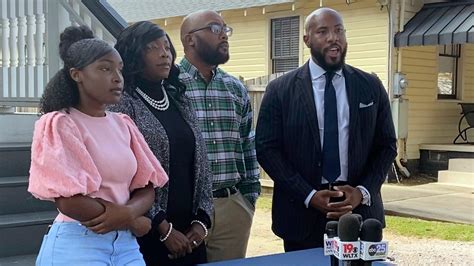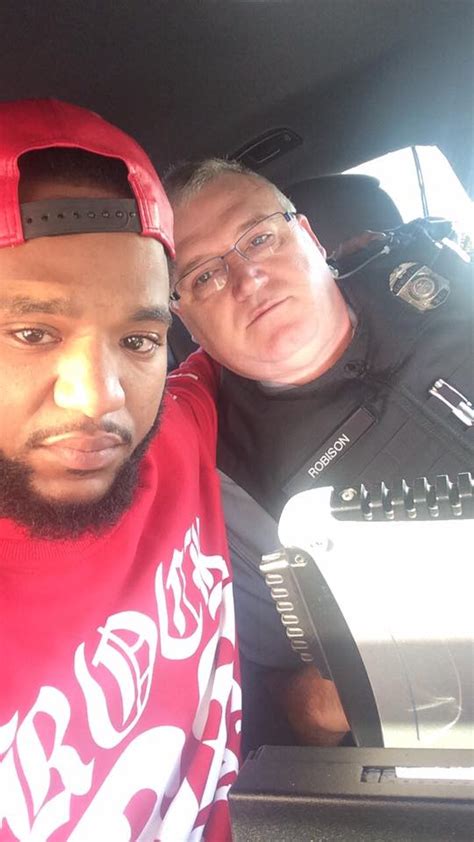
A Palestinian-American high school student is suing Utica Community Schools in Michigan, alleging a teacher retaliated against her for silently protesting the Pledge of Allegiance due to her support for Palestine.
Utica, Michigan – A Palestinian-American high school student, identified as L.H. in court documents, has filed a lawsuit against Utica Community Schools, alleging that a teacher at Eisenhower High School retaliated against her for silently protesting the Pledge of Allegiance. The student, who is of Palestinian descent, claims the teacher’s actions stemmed from her expression of solidarity with Palestine. The lawsuit, filed in the U.S. District Court for the Eastern District of Michigan, accuses the teacher and the school district of violating the student’s First Amendment rights to free speech and expression.
According to the complaint, the incident occurred in October 2023, shortly after the outbreak of the conflict between Israel and Hamas. L.H., who had previously stood silently during the Pledge of Allegiance as a form of protest, continued her practice. On this particular day, the teacher, identified in the lawsuit as Ms. [Teacher’s Last Name], allegedly singled her out in front of the class. The lawsuit states that Ms. [Teacher’s Last Name] made comments perceived as critical of L.H.’s silent protest and questioned her patriotism.
The lawsuit claims that the teacher’s actions created a hostile environment for L.H., who felt targeted and discriminated against due to her ethnicity and political views. The student alleges that she experienced emotional distress, anxiety, and a fear of further retaliation as a result of the incident. The lawsuit further contends that the school district failed to adequately protect L.H.’s rights and address the teacher’s alleged misconduct.
The legal action seeks compensatory damages for the emotional distress and harm suffered by L.H., as well as injunctive relief to prevent the school district from engaging in similar conduct in the future. The lawsuit also calls for the school district to implement policies and training programs to ensure that students’ First Amendment rights are respected and protected.
The Council on American-Islamic Relations (CAIR) Michigan chapter, which is representing L.H., condemned the teacher’s alleged actions and emphasized the importance of protecting students’ rights to express their political views without fear of reprisal. CAIR-Michigan Executive Director Dawud Walid stated, “Students do not shed their constitutional rights at the schoolhouse gate. The teacher’s alleged behavior is unacceptable and violates the student’s First Amendment rights.”
Utica Community Schools has declined to comment on the pending litigation, citing district policy regarding legal matters. However, the district has stated that it is committed to providing a safe and inclusive learning environment for all students.
The case raises important questions about the balance between patriotism, free speech, and the rights of students to express their political views in schools. It also highlights the challenges that students from marginalized communities may face when expressing their identities and beliefs in educational settings. Legal experts note that the outcome of the case could have significant implications for school districts across the country, potentially shaping policies and practices related to student expression and the Pledge of Allegiance. The lawsuit underscores the ongoing debate about the role of schools in fostering civic engagement while respecting students’ constitutional rights.
The lawsuit details several instances where the teacher allegedly created a hostile environment. According to the complaint, after L.H. remained silent during the Pledge, the teacher allegedly said, “Maybe if you don’t like this country, you should go back to your country.” The lawsuit further alleges that the teacher made disparaging remarks about Palestinians and their views on the Israeli-Palestinian conflict.
“This wasn’t just about the Pledge; it was about singling me out for my identity,” L.H. stated in an interview. “I felt humiliated and silenced. No student should have to experience that.”
CAIR-Michigan emphasized that the lawsuit is not an attack on patriotism but rather an effort to protect the constitutional rights of all students, regardless of their background or beliefs. “We believe in the importance of civic education and patriotism,” said Amy Doukoure, staff attorney at CAIR-Michigan. “But patriotism should never be used as a weapon to silence or marginalize students who hold dissenting views.”
The legal team representing L.H. plans to present evidence, including witness testimony and school records, to support their claims. They argue that the teacher’s actions violated L.H.’s First Amendment rights to freedom of speech and expression, as well as her Fourteenth Amendment rights to equal protection under the law.
The case is expected to draw significant attention from civil rights organizations, educational institutions, and legal scholars. Many are closely watching the proceedings, as the outcome could set a precedent for how schools handle similar situations involving student expression and the Pledge of Allegiance.
The lawsuit also raises broader questions about the role of schools in promoting inclusivity and understanding in an increasingly diverse society. Some argue that schools have a responsibility to create a safe and welcoming environment for all students, regardless of their race, ethnicity, religion, or political beliefs. Others maintain that schools should prioritize patriotism and civic education, even if it means that some students may feel uncomfortable or marginalized.
The debate over the Pledge of Allegiance in schools is not new. In 1943, the Supreme Court ruled in West Virginia State Board of Education v. Barnette that students cannot be forced to salute the flag or recite the Pledge of Allegiance. The Court held that such mandatory participation violates students’ First Amendment rights to freedom of speech and religion.
Despite the Supreme Court’s ruling, the Pledge of Allegiance remains a common practice in many schools across the country. Some students choose to participate as a show of patriotism, while others choose to remain silent or abstain altogether for various reasons, including religious beliefs, political views, or personal convictions.
The lawsuit filed by L.H. highlights the challenges that schools face in balancing the rights of students to express their political views with the need to maintain order and promote a positive learning environment. It also underscores the importance of educating teachers and administrators about students’ constitutional rights and the potential impact of their actions on students’ well-being.
Several legal scholars have commented on the case, noting that it presents a complex set of legal and ethical issues. Some argue that the teacher’s alleged actions were clearly inappropriate and violated L.H.’s rights, while others suggest that the case may be more nuanced, depending on the specific facts and circumstances.
“This case raises important questions about the scope of students’ First Amendment rights in schools,” said Professor Nadine Strossen, a constitutional law expert at New York Law School and former president of the ACLU. “While students have the right to express their political views, schools also have the right to maintain order and prevent disruptions to the educational process. The challenge is to strike a balance between these competing interests.”
The Utica Community Schools district has a history of dealing with diversity issues, but this case brings to light a particularly sensitive situation involving political expression and national identity. The school’s policies on student conduct and free speech will likely be scrutinized as the case progresses.
The lawsuit filed by L.H. is not an isolated incident. In recent years, there have been several other cases involving students who have claimed that their rights were violated for expressing their political views in schools. These cases often involve issues such as freedom of speech, religious expression, and the right to protest.
The outcome of the L.H. case could have a significant impact on the legal landscape surrounding student expression in schools. If the court rules in favor of L.H., it could send a message to school districts across the country that they must take greater care to protect students’ First Amendment rights. Conversely, if the court rules in favor of the school district, it could embolden schools to restrict student expression in certain circumstances.
Regardless of the outcome, the case is sure to spark further debate about the role of schools in fostering civic engagement and protecting students’ constitutional rights. It also serves as a reminder that schools must be vigilant in ensuring that all students feel safe, respected, and valued, regardless of their race, ethnicity, religion, or political beliefs.
The case also comes at a time of heightened political polarization and social division in the United States. Many schools are struggling to navigate these challenges and create a learning environment that is both inclusive and respectful of diverse viewpoints. The L.H. case highlights the need for schools to develop clear and consistent policies on student expression and to provide training to teachers and administrators on how to handle sensitive situations involving political speech.
The lawsuit seeks not only monetary compensation for the emotional distress L.H. suffered but also systemic changes within the Utica Community Schools. The legal team is requesting that the school district implement mandatory training for all staff members on student rights, cultural sensitivity, and the appropriate handling of political expression in the classroom.
“We want to ensure that what happened to L.H. never happens again,” said Doukoure. “This case is about more than just one student; it’s about protecting the rights of all students to express their views without fear of retaliation.”
The school district’s response to the lawsuit will be closely watched. While they have declined to comment on the specifics of the case, their actions in the coming weeks and months will likely reveal their approach to addressing the issues raised in the complaint.
The case is also likely to have a ripple effect beyond the Utica Community Schools. Other school districts across the country may review their own policies and practices in light of the L.H. case, and some may choose to implement changes to better protect students’ rights.
The lawsuit underscores the importance of open and respectful dialogue about controversial issues in schools. While it is important for schools to maintain order and prevent disruptions, it is also essential that they create a space where students feel comfortable expressing their views and engaging in civil discourse.
The L.H. case is a reminder that the struggle for civil rights and equality is ongoing. Even in the 21st century, students from marginalized communities may face discrimination and retaliation for expressing their identities and beliefs. It is up to all of us to stand up for these students and ensure that their rights are protected.
The court proceedings are expected to last for several months, and the outcome is uncertain. However, one thing is clear: the L.H. case has already sparked an important conversation about student rights, free speech, and the role of schools in fostering civic engagement.
The case also highlights the growing awareness of Palestinian rights and the increasing willingness of individuals to speak out against injustice and discrimination. As the conflict between Israel and Palestine continues to garner international attention, it is likely that we will see more cases like this one in the future.
The lawsuit filed by L.H. is a courageous act of defiance against injustice and a powerful reminder that the fight for equality is far from over. It is a call to action for all of us to stand up for what is right and to protect the rights of all students, regardless of their race, ethnicity, religion, or political beliefs.
The situation also draws attention to the complexities faced by educators in balancing their responsibilities to uphold school policies, teach patriotism, and respect students’ diverse viewpoints. Many teachers strive to create inclusive classrooms where all students feel safe and valued, but incidents like the one described in the lawsuit can pose significant challenges.
Moreover, the case underscores the need for ongoing dialogue between students, teachers, administrators, and community members about how to create schools that are truly welcoming and equitable for all. This dialogue must be informed by a deep understanding of students’ rights, cultural sensitivity, and a commitment to promoting respectful discourse.
The legal battle is expected to be lengthy and complex, involving extensive discovery, expert testimony, and legal arguments. Both sides will likely present compelling evidence to support their respective positions, and the court will ultimately have to weigh the competing interests at stake.
Regardless of the outcome, the L.H. case will undoubtedly leave a lasting impact on the Utica Community Schools and the broader educational community. It serves as a reminder that the fight for justice and equality is a continuous process that requires vigilance, courage, and a unwavering commitment to protecting the rights of all individuals.
The case is a testament to the power of individual action in the face of adversity. L.H.’s decision to file a lawsuit against the school district is a bold step that could have far-reaching consequences. Her courage in standing up for her rights is an inspiration to others who may be facing similar challenges.
The lawsuit also highlights the importance of organizations like CAIR-Michigan, which provide legal representation and advocacy for individuals who have been discriminated against because of their religion or ethnicity. These organizations play a crucial role in protecting civil rights and ensuring that all individuals have equal access to justice.
The L.H. case is a reminder that the struggle for justice and equality is a shared responsibility. We all have a role to play in creating a society where all individuals are treated with dignity and respect. By speaking out against injustice, supporting civil rights organizations, and advocating for policy changes, we can help to build a more just and equitable world.
The lawsuit filed by L.H. against Utica Community Schools is a significant event that has the potential to shape the future of student rights and free speech in schools across the country. It is a case that deserves close attention and careful consideration.
The outcome of this case will not only affect L.H. and the Utica Community Schools, but it will also have implications for students, teachers, and school districts throughout the United States. It is a case that will be closely watched by civil rights organizations, educational institutions, and legal scholars for years to come.
The L.H. case is a reminder that the fight for justice and equality is an ongoing process that requires constant vigilance and unwavering commitment. It is a call to action for all of us to stand up for what is right and to protect the rights of all individuals, regardless of their race, ethnicity, religion, or political beliefs.
Frequently Asked Questions (FAQ):
-
What is the core issue of the lawsuit filed by L.H.?
The lawsuit centers on the allegation that a teacher at Eisenhower High School retaliated against L.H. for silently protesting the Pledge of Allegiance in support of Palestine, violating her First Amendment rights to free speech and expression.
-
What specific actions by the teacher are being challenged in the lawsuit?
The lawsuit alleges that the teacher singled out L.H. in front of the class, made comments perceived as critical of her silent protest, questioned her patriotism, and allegedly said, “Maybe if you don’t like this country, you should go back to your country.” The lawsuit also states that the teacher made disparaging remarks about Palestinians and their views on the Israeli-Palestinian conflict.
-
What is Utica Community Schools’ response to the lawsuit?
Utica Community Schools has declined to comment on the pending litigation, citing district policy regarding legal matters. However, the district has stated that it is committed to providing a safe and inclusive learning environment for all students.
-
What is CAIR-Michigan’s involvement in the case?
CAIR-Michigan (Council on American-Islamic Relations) is representing L.H. in the lawsuit. They condemned the teacher’s alleged actions and emphasized the importance of protecting students’ rights to express their political views without fear of reprisal. CAIR-Michigan Executive Director Dawud Walid stated that the teacher’s alleged behavior is unacceptable and violates the student’s First Amendment rights.
-
What are the potential implications of this lawsuit for other schools and students?
The outcome of the case could have significant implications for school districts across the country, potentially shaping policies and practices related to student expression, the Pledge of Allegiance, and the handling of political speech in the classroom. It could also influence how schools address issues of diversity, inclusivity, and the rights of students from marginalized communities.
-
What legal precedent is relevant to this case?
The Supreme Court case West Virginia State Board of Education v. Barnette (1943) is relevant, as it established that students cannot be forced to salute the flag or recite the Pledge of Allegiance, based on First Amendment rights to freedom of speech and religion.
-
What type of damages is L.H. seeking in the lawsuit?
L.H. is seeking compensatory damages for the emotional distress and harm she suffered, as well as injunctive relief to prevent the school district from engaging in similar conduct in the future. She is also requesting that the school district implement policies and training programs to ensure students’ First Amendment rights are respected and protected.
-
What broader issues does this case highlight?
The case highlights the ongoing debate about the balance between patriotism, free speech, and the rights of students to express their political views in schools. It also underscores the challenges that students from marginalized communities may face when expressing their identities and beliefs in educational settings, and the complexities faced by educators in creating inclusive classrooms.
-
What evidence is the legal team planning to present in court?
The legal team representing L.H. plans to present evidence, including witness testimony and school records, to support their claims that the teacher’s actions violated L.H.’s First Amendment rights to freedom of speech and expression, as well as her Fourteenth Amendment rights to equal protection under the law.
-
How might the current political climate be influencing this case?
The case comes at a time of heightened political polarization and social division in the United States, which can make it more challenging for schools to navigate sensitive issues involving political expression and national identity. The case also reflects the growing awareness of Palestinian rights and the increasing willingness of individuals to speak out against injustice and discrimination.
-
What specific systemic changes is the lawsuit seeking within the Utica Community Schools?
The lawsuit seeks the implementation of mandatory training for all staff members on student rights, cultural sensitivity, and the appropriate handling of political expression in the classroom, aiming to prevent similar incidents from occurring in the future.
-
How has the school district responded to requests for comment on the specific allegations?
The school district has declined to comment on the specific allegations, citing district policy regarding legal matters, but has affirmed its commitment to providing a safe and inclusive learning environment for all students.
-
What impact could the outcome of this case have on the legal landscape surrounding student expression in schools?
If the court rules in favor of L.H., it could send a message to school districts across the country that they must take greater care to protect students’ First Amendment rights. Conversely, if the court rules in favor of the school district, it could embolden schools to restrict student expression in certain circumstances.
-
Why is the student identified as L.H. in the court documents?
The student is identified as L.H. to protect her privacy and prevent further harassment or stigmatization, given the sensitive nature of the case and the potential for backlash.
-
Besides legal action, what other remedies are being sought in this case?
Beyond monetary compensation, the lawsuit seeks to foster a more inclusive and understanding environment within the school, promoting open dialogue and respect for diverse viewpoints, ensuring that students feel comfortable expressing their views and engaging in civil discourse.









